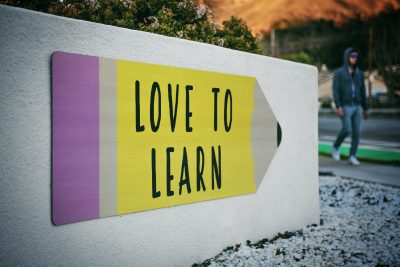 It seems like at this point in the lockdown that we as a nation are a long way off from putting education at the heart of society. England, Scotland, Wales and Northern Ireland are not speaking with one voice on this issue, as on many others. Yet it is now when a National Education Policy must be developed with strategies for each age-group on how learning can take place safely in a world easing itself into a post-pandemic phase. UCU member Irena Brezowski believes there must be plans made for guiding young people – our future workforce – with strategies, ideas and crucially devolving the finances to help them build a better world.
It seems like at this point in the lockdown that we as a nation are a long way off from putting education at the heart of society. England, Scotland, Wales and Northern Ireland are not speaking with one voice on this issue, as on many others. Yet it is now when a National Education Policy must be developed with strategies for each age-group on how learning can take place safely in a world easing itself into a post-pandemic phase. UCU member Irena Brezowski believes there must be plans made for guiding young people – our future workforce – with strategies, ideas and crucially devolving the finances to help them build a better world.
There seems little evidence of this progressive planning in the current conversations about how to get young people meaningfully back to school. The divides between the ‘haves’ and ‘have nots’ in society have opened up beyond all recognition. Those who have the essentials available to them – a ‘laptop, the internet, physical space to study at home and support from parents , siblings can continue to collect meaningful materials shared by schools. Those who don’t rely on poor internet connections, some even sourcing materials from parents mobiles phones over mobile data. Meanwhile the promised 230,000 laptops from the government for students with them are still nowhere to be seen.
Learn, Progress and Achieve
 There is no way to paper over the cracks and it seems that there is no will-power in government to do this. The focus is predictably on the economy. Boris’ latest message now that non-essential shops have reopened is for the public to ‘Spend, Spend, Spend’. He does this while many families have been forced into debt from being left outside of government furlough and support schemes.
There is no way to paper over the cracks and it seems that there is no will-power in government to do this. The focus is predictably on the economy. Boris’ latest message now that non-essential shops have reopened is for the public to ‘Spend, Spend, Spend’. He does this while many families have been forced into debt from being left outside of government furlough and support schemes.
Even finding money for school meals over the Summer for the very poorest was left to the efforts of a Premier league footballer. The government is taking less and less responsibility for the country and finding it easy to get away with it.
Meanwhile the Tory press lambasts teachers as lazy and accuses them of not wanting to go back to work. At the same time these same sources refuse to acknowledge that teachers are not there to provide a free baby sitting service. We are professionals, educators. Our role is to help our students learn, progress and achieve.
It must also be noted that the UK’s decision ton open schools was taken while our virus case numbers are far higher than other European countries. Yesterday 17/06 our reported cases were just over 1,100, deaths over 42,000 while Denmark where schools are fully open has had 598 deaths in total. A truly stark contrast.
Class Bubble
 Let me take you to an excellent Primary school in England reopening its gates to bubbles of children in years 1 and 6 in June 2020. Children of different ages have been allocated their class ‘bubble’. They must stay in these groups all day. They are unlikely to have been allocated their usual class teacher or indeed a member of staff that they are familiar with. Any work completed on paper must be shredded at the end of the day – nothing stored or taken home. No books from the library can be used. All of this is to lower the risk of transmission.
Let me take you to an excellent Primary school in England reopening its gates to bubbles of children in years 1 and 6 in June 2020. Children of different ages have been allocated their class ‘bubble’. They must stay in these groups all day. They are unlikely to have been allocated their usual class teacher or indeed a member of staff that they are familiar with. Any work completed on paper must be shredded at the end of the day – nothing stored or taken home. No books from the library can be used. All of this is to lower the risk of transmission.
Some children are clearly traumatised by the experience and have gone from actively looking forward to going back to school to now asking to stay at home because it is too stressful and different for them to feel comfortable. Every activity is punctuated by washing hands and using of hand sanitiser. Playtime consists of labelled zones in the playground. No one is allowed out of their zone. If you are playing with a ball that strays out of your area – you rely on child to kick it back. And perhaps in a throw back to 1984, there are no assemblies. The headmaster appears on the classroom screen to pass on their words of wisdom for the day.
Children’s mental health has been compromised both by being at school in such circumstances and because they have not been able to go to school. With an effective track and test system all of this would be so much simpler.
Meanwhile the world of work has reached out to available 17/18 year olds on zero hour contracts, in take aways, supermarkets. They are fuel for restarting the ‘gig’ economy.
They are flexible and willing but being tempted away from their learning. At work they earn real money and meet their friends. With education being done remotely they can use their time in different ways and study when they want to. As future employment will be a lot harder to come by you cannot blame the 17/18 year old working now as the future is uncertain.
Fund the Future
 A national education recovery plan is what is needed and a priority fo this government because now more than ever before this young generation need to know where thy are heading and what is in store. They are our future and cannot be allowed to drift.
A national education recovery plan is what is needed and a priority fo this government because now more than ever before this young generation need to know where thy are heading and what is in store. They are our future and cannot be allowed to drift.
The future of exams and assessment also needs careful consideration. Is Ofsted necessary in this new order? We are stuck in an antiquated system of waiting for 2 years before exams- surely an unnecessary extra stress when everything hangs in the balance. Gove’s system is not fit for purpose. Even Sir Kenneth Baker thinks the GCSE – his invention – has run its course. Some form of continuous assessment or coursework would have made the lives of teachers more bearable as they struggled grade their students fairly in lieu of exams .
Such is the anxiety of some students they a re considering taking Autumn exams. We do not yet have confirmation if they are available in every subject. This is something else which is not at clear in the ‘for profit’ system we have in place with exam boards.
Another possibility is retaking the year. However, as the current 17 year olds eye up the next year, is it fair to ask them to take end of year exams given the trauma and lack of teaching some of them will have experienced? It seems unfair to condemn them to lower grades than they might have expected.
COVID-19 has had the least health implications on this cohort but its consequences will have the most impact on their futures. The National Education Union has produced it own recovery plan and is well worth reading to get a glimpse of what could and should be happening in the near future.
For the UCU ‘Fund the Future’ campaign click here

There should be a vision to give children the tools to learn and interrogate media reports for accuracy and bias.
When I tried to do this in the nineties I was labelled by County ‘an ant-establishment thinker. If we track what has happened with the introduction of IT we can see what a lost opportunity it was not to give children those tools for thinking and learning rather than be so concerned with learning facts.